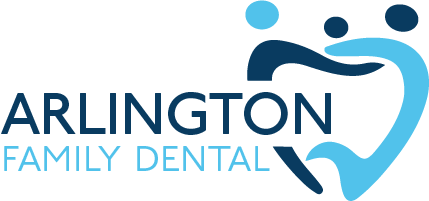
23 Apr Do I Have Oral Cancer?
Wondering if that sore in your mouth means something serious? You’re not alone. Oral cancer can sneak up quietly. It often starts with small, harmless-looking symptoms. But the earlier you catch it, the better your chances of beating it. If something feels off in your mouth, it’s worth paying attention.
Mouth Sores That Don’t Heal
Most mouth sores are harmless. Canker sores and cold sores come and go. But when a sore sticks around for more than two weeks, it’s time to take notice. Persistent sores are one of the most common symptoms of oral cancer. And it’s not just sores. Red or white patches inside your mouth can also be warning signs. These spots might show up on your tongue, the inside of your cheeks, your gums, or even the roof of your mouth.
You might also notice other changes. Loose teeth with no clear cause. Pain in your jaw or mouth that doesn’t go away. Lumps or thickened areas inside your mouth. Even difficulty swallowing or feeling like something is caught in your throat. None of these symptoms means you definitely have cancer. But if they don’t go away, you should see a doctor or dentist. Oral cancer often doesn’t cause pain early on, which is why it’s easy to overlook. Don’t wait it out, hoping it’ll disappear. If something lingers more than two weeks, make the call. Better safe than sorry.
Tobacco Is a Major Risk Factor
If you smoke, chew tobacco, or vape nicotine products, you’re at much higher risk for oral cancer. This isn’t just about long-term users. Even people who’ve used tobacco for a few years can be at risk.
Most people with oral cancer are tobacco users. The type of tobacco doesn’t matter much. Cigarettes, cigars, chewing tobacco, and snuff all raise your risk. Smokeless tobacco is often marketed as safer, but that’s misleading. It’s directly linked to cancer of the gums, cheeks, and lips. And if you combine tobacco with alcohol? The risk doesn’t just add up, it multiplies. Studies show that heavy drinking and smoking together make you many times more likely to develop oral cancer than doing either alone. The good news is that quitting helps. Your risk drops the longer you stay tobacco-free. So if you need a reason to stop, this is a strong one.
Sugary Drinks Could Be a Hidden Risk
A study published by JAMA Otolaryngology found a potential link between sugary drink consumption and oral cancer. Women who drank one or more sugary beverages per week had a significantly higher risk of developing the disease. Even more surprising? This risk was present even in women who didn’t smoke or drink alcohol. Those are two of the most common causes of oral cancer. This suggests that sugar may play a bigger role in oral health than we thought.
Sugary drinks include soda, sweetened teas, energy drinks, and even some juices. These drinks can also cause tooth decay, which can create an unhealthy environment in your mouth. Chronic inflammation and damage may play a part in how cancer develops. Now, that does not mean that one soda will cause cancer. But if sugary drinks are a daily habit, it may be time to cut back. Water, unsweetened tea, or even diluted juice are better choices. Your mouth and your overall health will thank you.
Dentists Can Catch It Early
Think dental checkups are just about cavities and cleanings? Think again. Dentists are often the first to notice signs of oral cancer. During routine exams, many dentists look for red or white patches, abnormal lumps, or tissue changes in your mouth. You should get regular cancer screenings, especially if you’re over 40 or have known risk factors like tobacco or alcohol use.
These screenings are quick. Your dentist uses a light and mirror to check your mouth, throat, and tongue. They may also feel for lumps along your jaw and neck. It’s painless and could save your life. If your dentist sees anything suspicious, they’ll usually refer you for further testing. Don’t panic. Many abnormal-looking spots aren’t cancerous. But it’s always best to get clarity. Skipping dental visits because you “feel fine” can be risky. Oral cancer can develop silently. Make those checkups a priority, even if your teeth seem fine.
Early Diagnosis Makes a Huge Difference
Let’s say your doctor or dentist finds something suspicious. What next? You’ll likely have a biopsy, where a small sample of tissue is tested in a lab. If it turns out to be cancer, don’t assume the worst. Many cases of oral cancer are treatable. They are especially treatable if caught early. Treatment options may include surgery to remove the tumor, radiation therapy, or chemotherapy. Sometimes a combination is used. The earlier the stage, the better your odds. When found early, oral cancer has a five-year survival rate of around 85%. But that rate drops if the cancer spreads to other parts of the body. That’s why early detection is so important. Even if treatment is tough, catching cancer early can mean less invasive procedures and a faster recovery. So don’t delay. If you suspect something is wrong, act now.
Conclusion
Oral cancer can be easy to ignore until it’s not. It often starts quietly, with symptoms that look minor. But the risks are real. So it’s worth taking your mouth health seriously. You don’t need to panic if something feels off. But you do need to pay attention. Your mouth is trying to tell you something. Don’t ignore it. And if all is well? Great! Keep it that way. Make smart choices, see your dentist, and stay aware. Arlington Family Dental is always here to help. Please schedule an appointment with us today! Because your health starts with your habits, and your mouth is no exception.

About Our Team
Our team has over 30 years of combined experience in the field of dentistry and a passion for educating our patients on the importance of good dental hygiene. To learn more about them, please visit our team page
Our staff is dedicated to making sure that your entire experience is the best it can possibly be. Whatever your needs are, our team is trained to listen and offer the best advice and guidance in choosing the services that best meet your needs.

Sorry, the comment form is closed at this time.